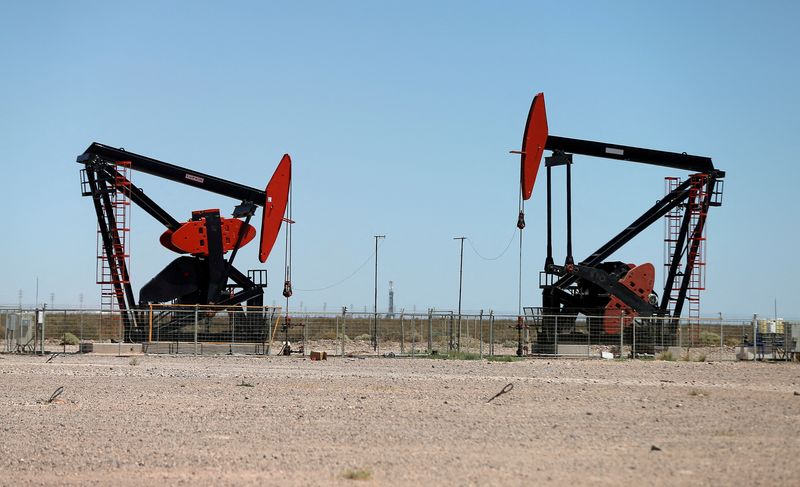By Florence Tan
SINGAPORE (Reuters) - Oil prices climbed in early trade on Monday as concerns over turmoil in the banking sector eased, while comments by Russian President Vladimir Putin over the weekend ratcheted up geopolitical tensions in Europe.
Brent crude futures gained 33 cents, or 0.4%, to $75.32 a barrel at 0040 GMT. U.S. West Texas Intermediate crude was at $69.65 a barrel, up 39 cents, or 0.6%.
Brent rose 2.8% last week, while WTI rebounded 3.8% as jitters in the banking sector eased.
"There has been a bounce in risk assets on the open this morning, more around the absence of any new bad banking developments over the weekend rather than any positive new developments as such," IG analyst Tony Sycamore said.
The rise in oil prices was more a relief rally and part of a correction after a 16% fall in the prior two weeks, he added.
Prices were also supported after President Vladimir Putin said he will station tactical nuclear weapons in Belarus, escalating geopolitical tensions in Europe over Ukraine.
NATO criticised Putin on Sunday for what it called his "dangerous and irresponsible" nuclear rhetoric.
Russia's Deputy Prime Minister Alexander Novak said on Friday that Moscow was very close to achieving its target of cutting crude output by 500,000 barrels per day (bpd) to around 9.5 million bpd.
Despite lowering output, Russia is expected to maintain crude oil exports by cutting refinery output in April, data from industry sources and Reuters calculations showed on Friday.
Exports of Russian oil products have to date been more affected than crude exports by a recent European Union embargo, with tonnes of diesel stuck on ships awaiting buyers.
In France, industrial action is disrupting refineries, reducing crude demand and fuel production.
Investors are watching out for China's manufacturing and services PMIs to be releases later this week.

The data could be supportive for oil if it shows further recovery of the country's economic activities from COVID disruptions, CMC Markets analyst Tina Teng said.
In the U.S., oil rigs rose four to 593 last week, up for the first time in six weeks, while gas rigs held steady at 162, energy services firm Baker Hughes Co said in a report on Friday.